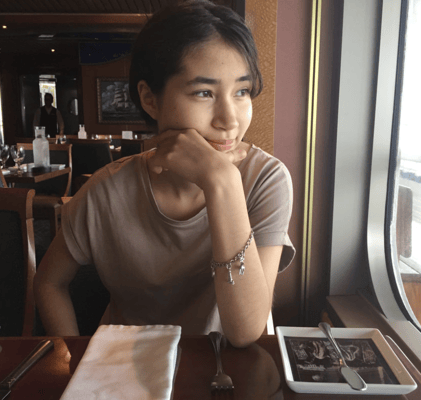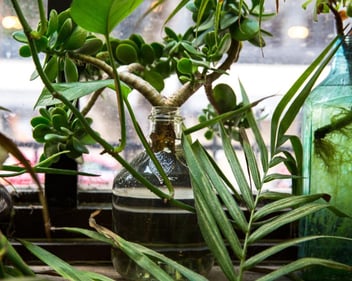No one likes receiving a curt rejection on their writing; however, sometimes a brush with negative feedback can be a crucial learning experience: it can demonstrate how not to give a review! Claire Swadling (US), winner of Best Peer Review for our Food Writing Competition, turned her experience with rejection into motivation to ensure her reviews are empowering and provide the writer with not only areas for improvement but also with pointers on what they should keep doing.
Below, we talk to Claire about her reviewing process, how it felt to learn that the piece she reviewed was the runner up, and what her experience as a Civics in Action 2020 Fellow has been like so far!

Guest Judge Limahl Asmall said, “I love the enthusiasm and the constructive criticism that both contribute to the success of this review.” What was your process for balancing suggestions with praise?
As a writer, I’ve always been hit hard with feedback on my work. Sometimes, I’ll submit a piece for journal publication and receive a curt rejection. If I’m lucky, the editor will return a short explanation, usually something along the lines of “doesn’t develop metaphors enough” or “verbosity detracts from subject matter.” It can be very frustrating to work hard on a piece and only be given a few words of denial in exchange. Receiving these kinds of comments initially made me dejected, however, I’ve realized that behind every “no,” there are dozens of “yes’s”; there are many things I did right that simply weren’t acknowledged. Since editors are busy, they don’t have time to point out everything they liked about your writing. As a peer reviewer on Write the World, I wanted to give the author a full picture and to empower the writer with not only the knowledge of how to improve, but also feedback on what to keep doing. I let my balance of criticism and enthusiasm arise naturally by carefully considering what I’d read every couple of lines.
How did it feel to see that the piece you reviewed got runner up?
At first, I didn’t realize it; I immediately looked up my piece on the blog and excitedly told my family. Once I calmed down to read about the rest of the winners, I was surprised to find that the runner-up’s title looked strangely familiar! I was delighted that Mr. Limahl Asmall had chosen it; in his comments, he seemed to recognize many of the similar aspects I had praised it for. It was both a moment of pride for accurately detecting the winning qualities and astonishment that the possibility hadn’t crossed my mind before; janevra is a wonderful writer!
How does peer reviewing inform your own writing?
I find peer reviewing to be immensely helpful to my writing. While considering someone else’s work, you are constantly comparing it to yours, noting what qualities you perhaps need to improve on or should keep up. In this way, I believe that peer review is extremely beneficial for both the writer and the reader.
You’re currently a Write the World Civics in Action 2020 Fellow. Can you tell us a little bit about your experience so far?
Being a Civics in Action 2020 Fellow is an awesome experience! The program has really pushed me to both write more and write more thoughtfully. The prompts are often out of our comfort zones; they can be very challenging and require a lot of consideration. It also allows us to experiment with multimedia; my Black Lives Matter rap was actually featured as the most recent of the “Dispatches from the field” on the CIA page. Overall, it’s been a one-of-the-kind enlightening experience!
I was actually in a Civics in Action Zoom meeting when I found out I won Best Peer Review! Billie Fitzpatrick, Chief of Learning Strategy at WtW, started talking about the importance of peer reviews. All of sudden, she announced that I had won! Shocked, I spun towards my laptop to unmute myself and express my astonishment. I was very surprised; after submitting the review, I had totally forgotten I had entered! On my desk were meticulously-placed paper cutouts of molecules I had made for a stop motion animation film about chemistry. Unfortunately, my whirling around caused some of my molecules to drift off the table. In the moments that ensued, I found myself excitedly picking up chemical structures off the floor.





